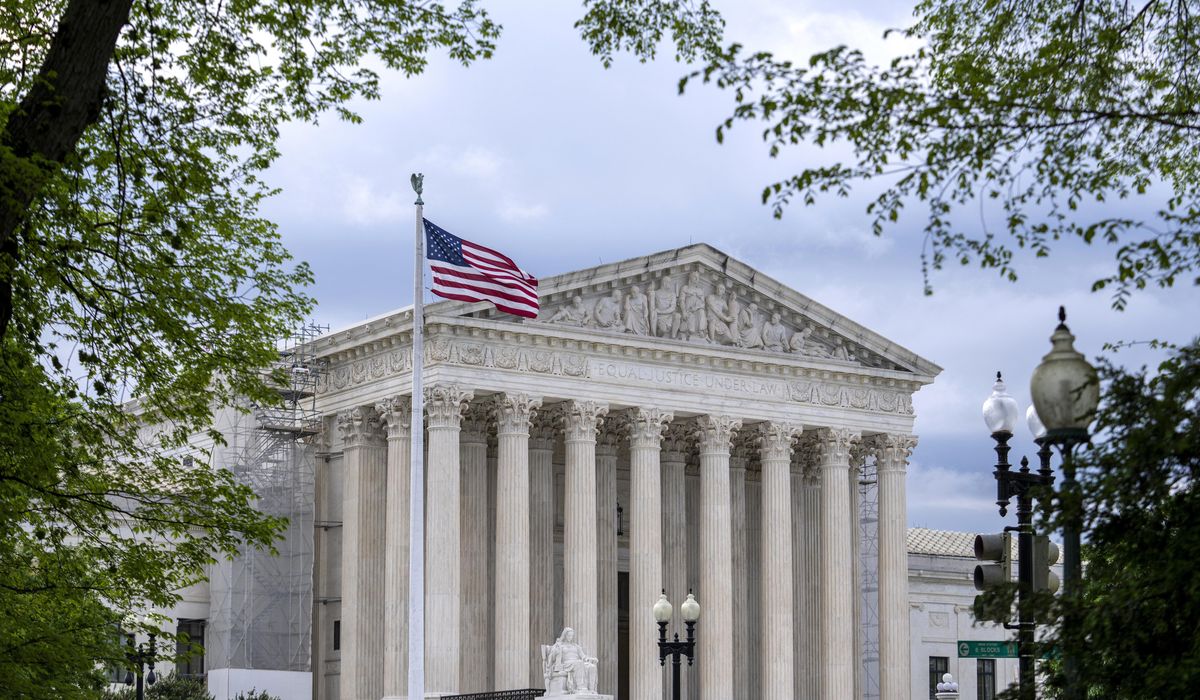


The Supreme Court, in a pair of decisions Friday, said businesses affected by government action from the Environmental Protection Agency and the Food and Drug Administration have the right to challenge those agency decisions in court.
In one case, the justices said fuel producers can challenge the EPA’s approval of California’s electric vehicle mandate. In the other, the justices said retailers that sell tobacco products can challenge the FDA’s denial of a new tobacco product.
Opponents had argued that the businesses weren’t the targets of the government decisions and were too far down the chain of effects to qualify as injured parties, so they shouldn’t be allowed to challenge the agency’s actions.
The justices disagreed in two 7-2 rulings.
Justice Brett M. Kavanaugh, writing the majority opinion in the EPA case, said those affected by agency action should have a day in court.
“The government generally may not target a business or industry through stringent and allegedly unlawful regulation, and then evade the resulting lawsuits by claiming that the targets of its regulation should be locked out of court as unaffected bystanders,” he wrote.
Justice Amy Coney Barrett, writing for the court in the FDA ruling, said retailers that sell tobacco products qualify as “adversely affected” for purposes of challenging action.
That case involved the FDA’s decision not to approve R.J. Reynolds Vapor Co.’s menthol and mixed-berry flavored e-cigarettes. The FDA argued the retailer couldn’t challenge that rejection.
The EPA ruling centered on California’s unique status under the Clean Air Act to adopt its own strict standards for certain vehicle emissions. Other states can then choose to follow that standard or stick with the federal standard.
California must first win approval from the EPA for each change.
It sought permission for stricter emissions for vehicles sold in the state.
President George W. Bush’s administration rejected it, the Obama administration approved it, the first Trump administration revoked it and the Biden administration restored it.
Mr. Trump has ordered another review.
Meanwhile, fuel manufacturers rushed in to sue, arguing the EPA lacked the power to approve the state’s plans because its goal was to try to affect global air quality, not just California’s air.
Lower courts ruled the fuel market was too complicated for the manufacturers to show they were particularly injured by California’s changes, but Justice Kavanaugh, writing for the court, said it was “predictable” that the state’s actions would affect the market and that was good enough.
Fuel producers cheered the decision.
“Today the Supreme Court put to rest any question about whether fuel manufacturers have a right to challenge unlawful electric vehicle mandates. We do, and we look forward to finally having our day in court,” said Chet Thompson, CEO of American Fuel & Petrochemical Manufacturers.
• Stephen Dinan can be reached at sdinan@washingtontimes.com.
• Alex Swoyer can be reached at aswoyer@washingtontimes.com.
